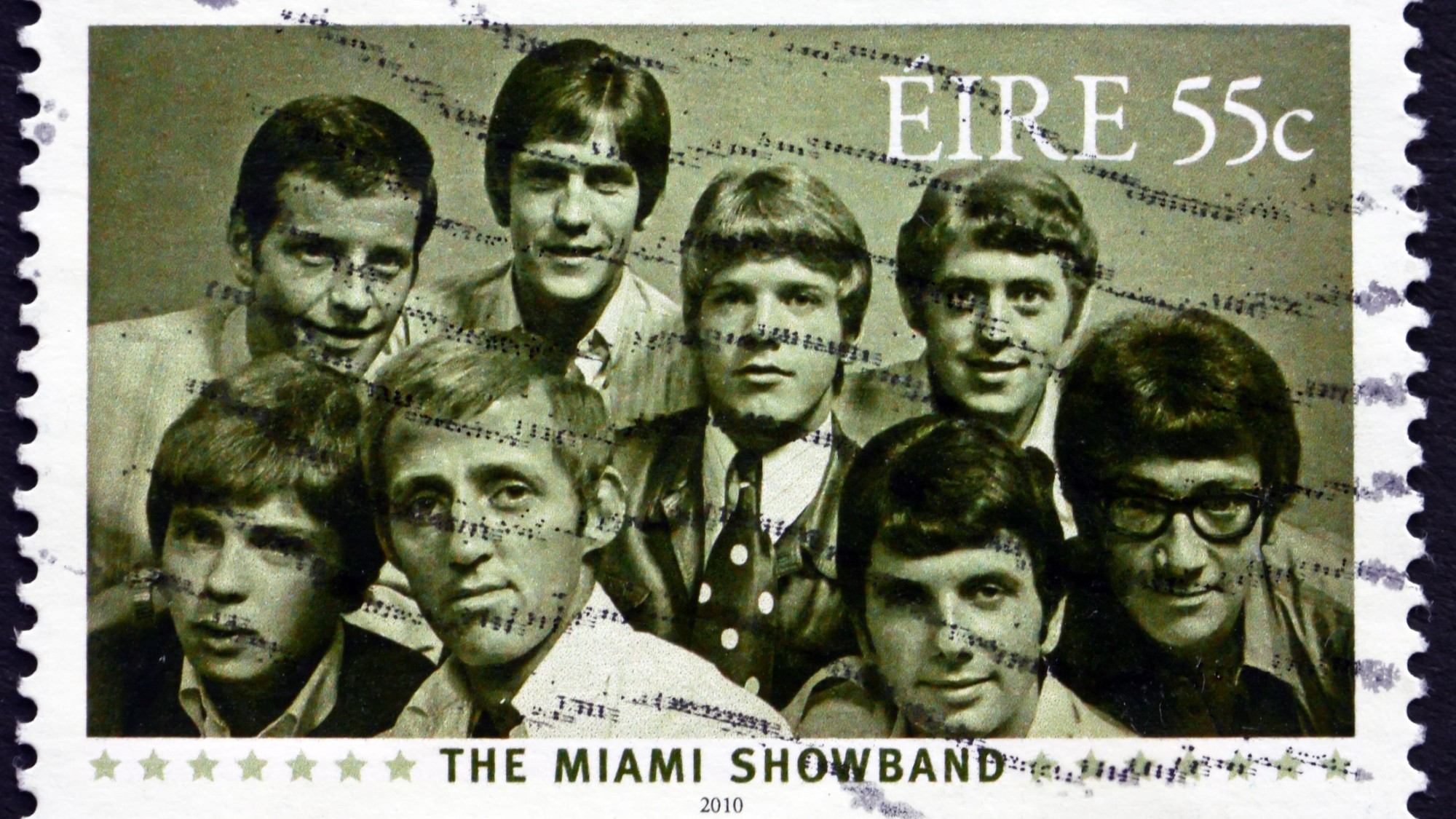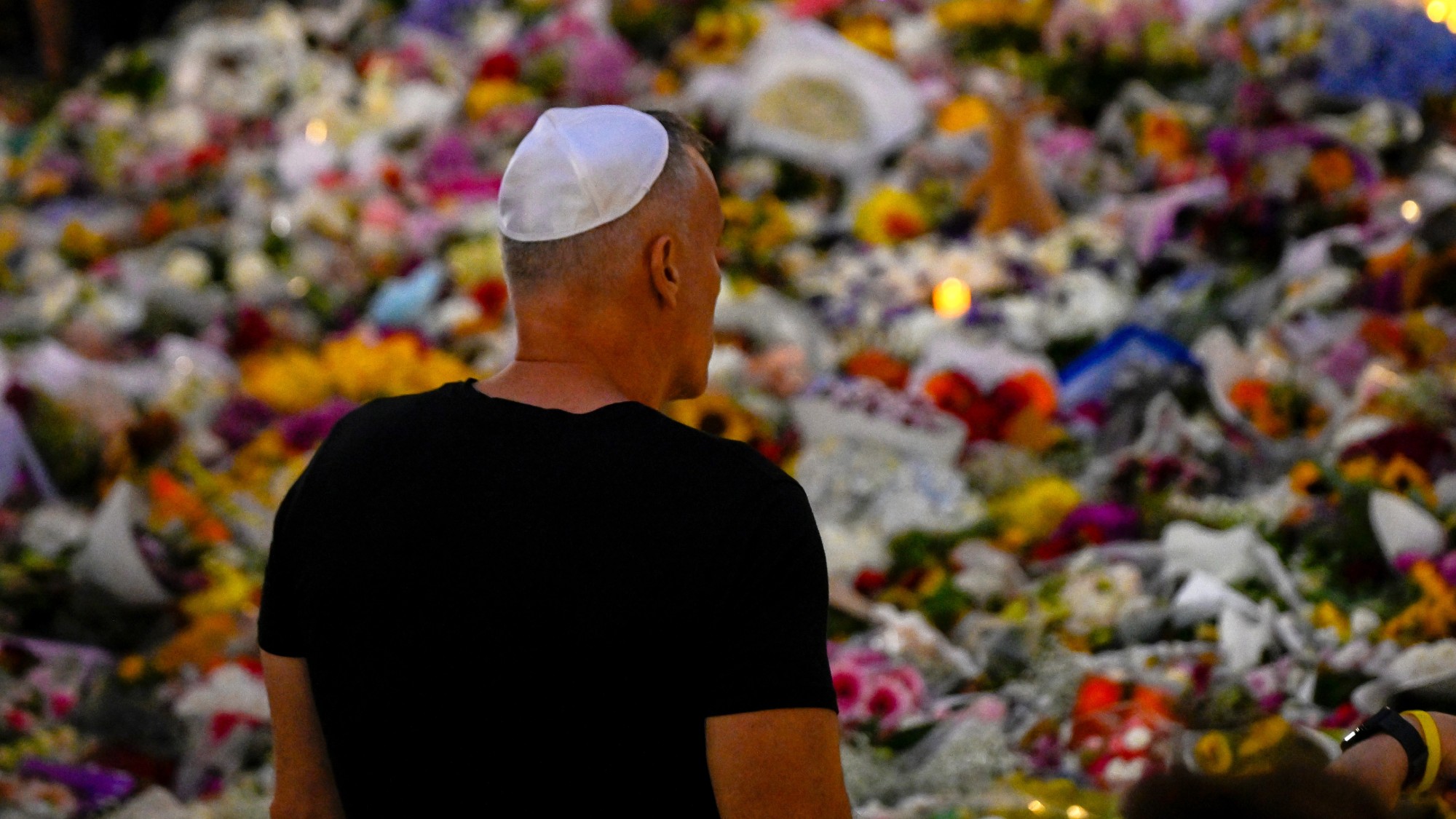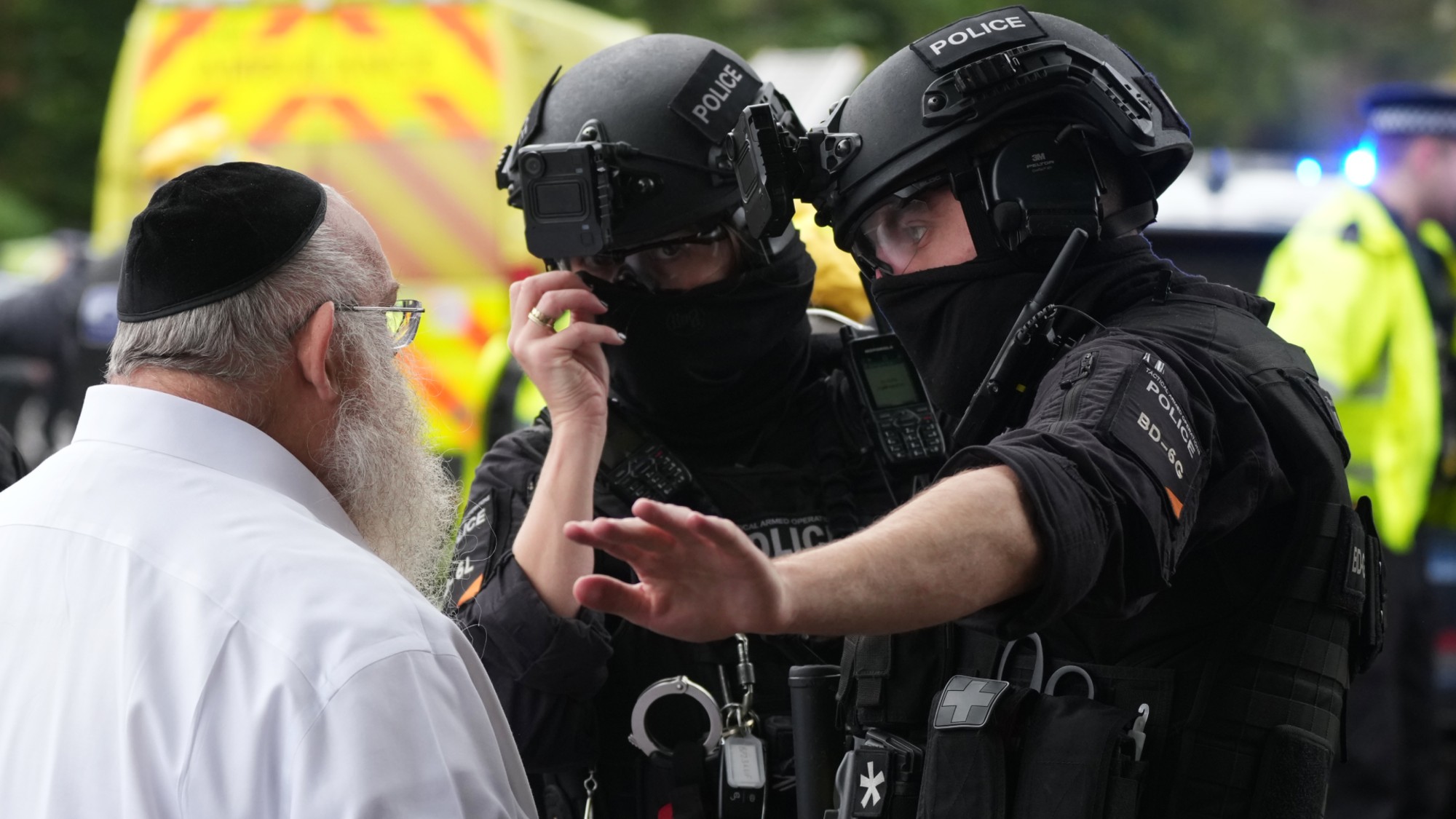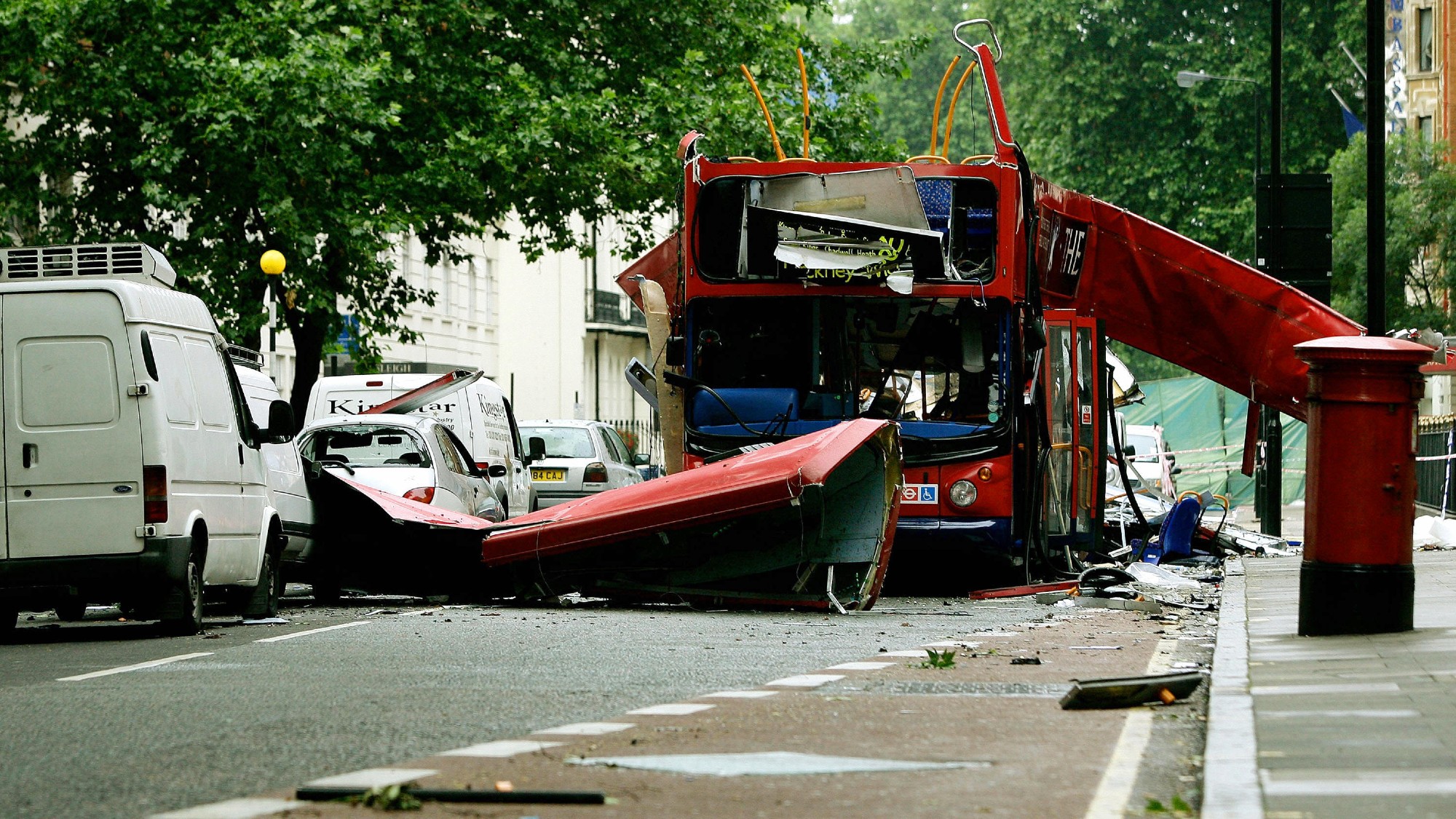The Miami Showband massacre, 50 years on
Unanswered questions remain over Troubles terror attack that killed three members of one of Ireland's most popular music acts

A free daily email with the biggest news stories of the day – and the best features from TheWeek.com
You are now subscribed
Your newsletter sign-up was successful
Fifty years ago this week, one of Ireland's most popular music groups became the target of a terror attack in which three of its members were killed by loyalist paramilitaries posing as British Army soldiers.
A "controversial" parade due to take place in Northern Ireland this weekend "risks stepping over the line into the glorification of terrorism", said the BBC. Fifteen bands and hundreds of people are expected to take part in the Harris Boyle 50th Anniversary Memorial parade in County Armagh, in memory of one of the perpetrators of the Miami Showband Massacre.
Who were the Miami Showband?
The Miami Showband were a touring cabaret band formed in 1962, who became one of the biggest stars of Ireland's showband scene. An evolution from the travelling big bands of the 1940s and 1950s, showbands offered a more contemporary pop and easy listening sound, playing to packed houses across the length and breadth of the island of Ireland.
The Week
Escape your echo chamber. Get the facts behind the news, plus analysis from multiple perspectives.

Sign up for The Week's Free Newsletters
From our morning news briefing to a weekly Good News Newsletter, get the best of The Week delivered directly to your inbox.
From our morning news briefing to a weekly Good News Newsletter, get the best of The Week delivered directly to your inbox.
The Miami Showband's name was inspired by the first venue they played, the Palm Beach Ballroom in Portmarnock, north of Dublin. They had seven number-one hits in Ireland and performed Ireland's entry in the 1966 Eurovision Song Contest, finishing joint fourth. They also played in Northern Ireland, and had also appeared on UK television programmes.
What happened?
On 31 July 1975, the band were travelling home to Dublin after a concert in Banbridge, Northern Ireland, when they were stopped by a group of around 10 men in uniform at what appeared to be a British Army checkpoint. In fact, the "soldiers" were all members of the Ulster Volunteer Force, a loyalist paramilitary group. Four of them were also serving in the British Army's Ulster Defence Regiment.
The attackers ordered the band members to line up at the side of the road while they attempted to place a bomb on the tour bus. It's believed that the plan was for the bomb to detonate once the van passed into the Republic of Ireland, framing the band members as IRA bomb smugglers, attracting bad publicity for the Republican cause and prompting stricter security measures at the border.
However, the explosive detonated prematurely, killing two of the paramilitaries, including Harris Boyle. The surviving gunmen then opened fire on the band, murdering lead singer Fran O’Toole, guitarist Tony Geraghty and trumpet player Brian McCoy. Two other members of the band, Des McAlea and Stephen Travers, were injured but survived.
A free daily email with the biggest news stories of the day – and the best features from TheWeek.com
Were the killers brought to justice?
In 1976, two men were jailed for 35 years in connection with the murders. Imposing the longest life sentences in Northern Ireland history, the judge said "killings like the Miami Showband must be stopped" and hinted that the death penalty would have been imposed had it not been recently abolished.
A third attacker, former British Army soldier John James Somerville, was convicted in 1981 for his involvement in the killings, as well as a separate sectarian murder. All three declined to name their accomplices and their identities remain unknown. They were released in 1998 under the terms of the Good Friday Agreement.
In 2019, Netflix documentary "ReMastered: The Miami Showband Massacre" brought the killings back into the public eye, following survivor Stephen Travers' fight to bring the killers to justice and keep the memory of his bandmates alive.
Chas Newkey-Burden has been part of The Week Digital team for more than a decade and a journalist for 25 years, starting out on the irreverent football weekly 90 Minutes, before moving to lifestyle magazines Loaded and Attitude. He was a columnist for The Big Issue and landed a world exclusive with David Beckham that became the weekly magazine’s bestselling issue. He now writes regularly for The Guardian, The Telegraph, The Independent, Metro, FourFourTwo and the i new site. He is also the author of a number of non-fiction books.
-
 How the FCC’s ‘equal time’ rule works
How the FCC’s ‘equal time’ rule worksIn the Spotlight The law is at the heart of the Colbert-CBS conflict
-
 What is the endgame in the DHS shutdown?
What is the endgame in the DHS shutdown?Today’s Big Question Democrats want to rein in ICE’s immigration crackdown
-
 ‘Poor time management isn’t just an inconvenience’
‘Poor time management isn’t just an inconvenience’Instant Opinion Opinion, comment and editorials of the day
-
 How the ‘British FBI’ will work
How the ‘British FBI’ will workThe Explainer New National Police Service to focus on fighting terrorism, fraud and organised crime, freeing up local forces to tackle everyday offences
-
 How the Bondi massacre unfolded
How the Bondi massacre unfoldedIn Depth Deadly terrorist attack during Hanukkah celebration in Sydney prompts review of Australia’s gun control laws and reckoning over global rise in antisemitism
-
 Who is fuelling the flames of antisemitism in Australia?
Who is fuelling the flames of antisemitism in Australia?Today’s Big Question Deadly Bondi Beach attack the result of ‘permissive environment’ where warning signs were ‘too often left unchecked’
-
 ‘Stakeknife’: MI5’s man inside the IRA
‘Stakeknife’: MI5’s man inside the IRAThe Explainer Freddie Scappaticci, implicated in 14 murders and 15 abductions during the Troubles, ‘probably cost more lives than he saved’, investigation claims
-
 Ten years after Bataclan: how has France changed?
Ten years after Bataclan: how has France changed?Today's Big Question ‘Act of war’ by Islamist terrorists was a ‘shockingly direct challenge’ to Western morality
-
 Arsonist who attacked Shapiro gets 25-50 years
Arsonist who attacked Shapiro gets 25-50 yearsSpeed Read Cody Balmer broke into the Pennsylvania governor’s mansion and tried to burn it down
-
 Manchester synagogue attack: what do we know?
Manchester synagogue attack: what do we know?Today’s Big Question Two dead after car and stabbing attack on holiest day in Jewish year
-
 The failed bombings of 21/7
The failed bombings of 21/7The Explainer The unsuccessful attacks 'unnerved' London and led to a tragic mistake